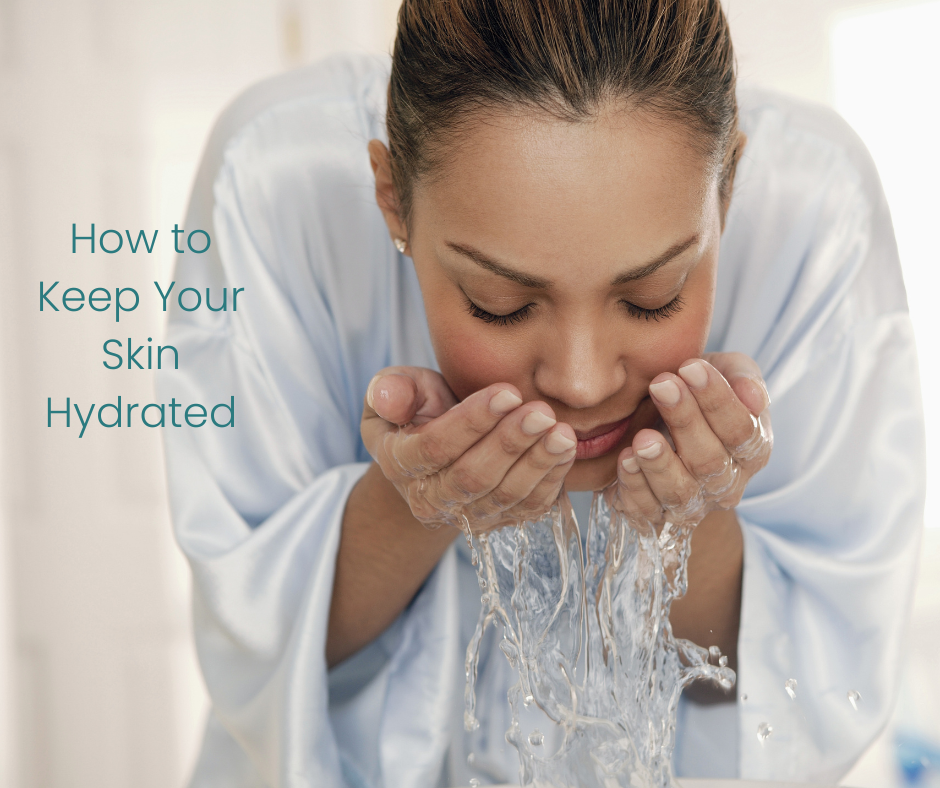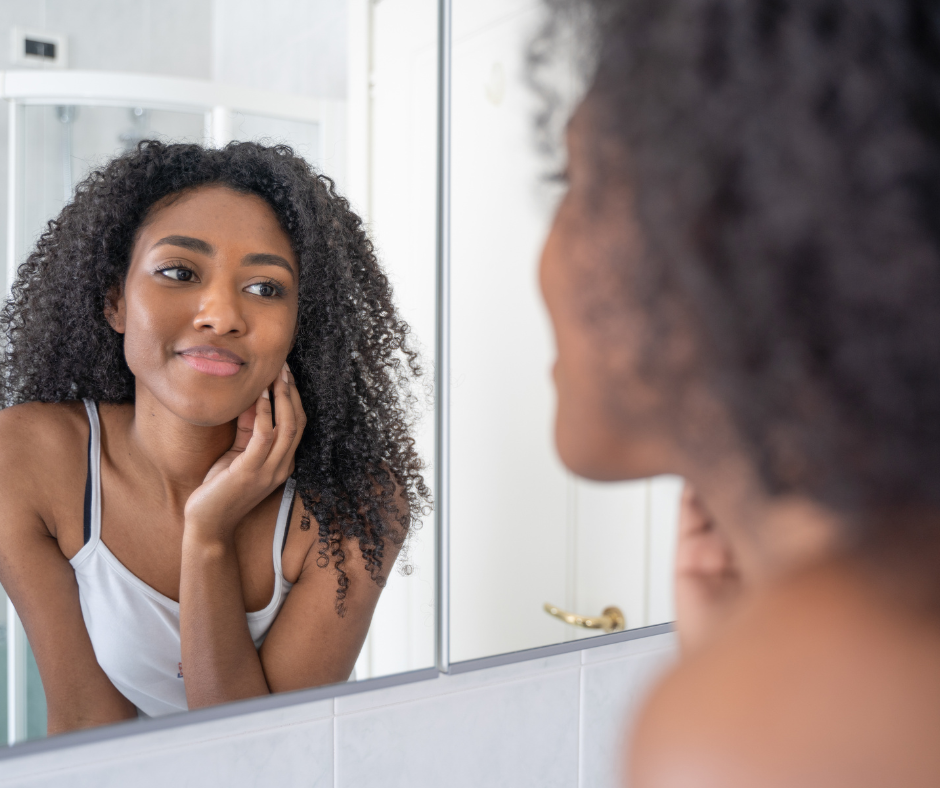How to Keep Your Skin Hydrated

Healthy skin is moisturised, glowing, and supple. Unfortunately, our daily lives often present challenges that leave our complexion looking and feeling rough and inflamed. These factors include a poor diet, stress, and environmental irritants. In women, premenstrual syndrome can contribute to dryness through hormonal changes that affect sebum production. Flaking, redness, and itching are some symptoms associated with dehydration. Left untreated, this can lead to premature aging, broken capillaries, and other epidermal conditions such as eczema and psoriasis. Over time, your complexion will look dull and become increasingly prone to damage caused by sun exposure, wind, and pollution. Thus, the importance of hydration can't be underscored enough. Whether you're looking to maintain or improve your skin's health and appearance, here are some essential tips to ensure it stays hydrated.
Top skin hydration hacks
Here are some of the must-dos you'll want to consider for a healthy, glowing complexion:
1. Drink enough fluids.
The adult human body consists of up to 60% water, which is necessary to keep our cells functioning properly. Not having enough H20 can lead to dehydration, resulting in dry and flaky skin. This is especially true in hot climates, where a lot of fluid is lost through sweating. Proper hydration also boosts circulation and helps flush out toxins that build up in the body, which can be highly damaging to the complexion. In addition, having enough fluids helps your body produce natural oils that help protect the skin from environmental aggressors like pollution or harsh weather conditions. So, make sure you meet your recommended daily intake of water.
2. Eat enough fruits and veggies.
Fruits and vegetables are packed with water, vitamins, and minerals that help keep skin healthy. They also contain powerful antioxidants that protect against damage from free radicals that cause premature aging.
To ensure you get enough fruits and vegetables each day, aim to fill half of your plate with a variety of colorful produce. Frozen or canned options when fresh isn't available are also great alternatives to help ensure you consistently get enough of these nutrient-dense foods.
3. Level up your moisturization with serums.
Applying serums is an essential step in any skincare routine. These can help keep your complexion hydrated and nourished by delivering potent ingredients to the deeper dermal layers. In addition, serums are usually more lightweight than moisturisers, making them ideal for oily or acne-prone skin.
To use one, apply a few drops after cleansing and toning on damp skin, then gently massage these into your face and neck. For added hydration, you could layer a moisturiser over the top of the serum to lock in the benefits. When choosing a serum, look for one that contains hyaluronic acid. This helps to draw water from the environment into the cells, giving you an instant boost of hydration
4. Use only gentle skincare products.
A gentle skincare regimen is vital in keeping your complexion hydrated. Harsh cleansers, exfoliants, and products with harsh chemicals can strip the skin of its inherent oils. It can also destroy healthy bacteria, disrupting the delicate pH balance. This can lead to excessive dryness and dehydration. Thus, to keep your complexion moisturised, avoid harsh chemicals and fragrances. Instead, opt for mild cleansers and other skincare products, such as those from Base Essentials.
Base Essentials Premium Body Lotion contains some of nature's most powerful skin repairing ingredients: Kakadu Plum Extract is a rich source of vitamin C to prevent hyperpigmentation, stimulate collagen & reduce the appearance of wrinkles. Bilberry acts as an anti-aging agent due to its collagen-boosting effects & protects from UV damage. Sandalwood Oil nourishes skin, improves elasticity, evens skin tone & moisturises. Ylang Ylang Essential Oil replenishes skin with hydrating properties that aid in maintaining the skin’s oil production. Aloe Vera contains vitamins A, C and E to moisturise, heal and promote skin regeneration. Look for creams and lotions with natural ingredients such as shea butter, Jojoba oil, hyaluronic acid, and Aloe Vera. Don't forget to use gentle massage techniques when applying these!
5. Get enough quality sleep.
Poor sleep hygiene doesn't just lead to impaired cognitive functions and increase your risk for chronic diseases; it can also cause your complexion to become dehydrated. Studies show that sleeplessness can affect hormone production and elevate the levels of stress hormones like norepinephrine and cortisol. This can lead to premature aging of your organs, including your skin.
So keep your epidermal and dermal layers looking fresh and hydrated by getting a good night's sleep. Firstly, set a regular bedtime and wake-up time that works for you and stick to this schedule. Secondly, avoid digital screens for at least an hour or two before bed, as this stimulates the brain and prevents it from relaxing. Also, make sure to create a comfortable sleep environment by maintaining a cool room temperature while keeping your environs dark and cosy. Lastly, synthetic fabrics such as polyester should be avoided in favour of natural materials like cotton or silk. This allows airflow and enables the skin to breathe.
6. Protect yourself from the sun.
It only takes 15 minutes from exposure to the sun to damage your skin. Too much sun damage can break down the skin's defensive barriers, leading to dehydration, premature aging, and even cancer. To shield yourself from the sun's destructive rays, wear sunscreen daily—even on cloudy days. Use SPF 30 or higher and ensure it is broad-spectrum, with UVA and UVB protection. Additionally, avoid prolonged direct sunlight between 10 am-2 pm when the UV rays are strongest. Finally, wear protective clothing like wide-brimmed hats, UPF-coated clothing (UPF stands for Ultraviolet Protection), and sunglasses. Taking proactive steps to protect your complexion from the sun will help keep it nourished and hydrated for years to come!
7. Avoid hot showers.
Hot showers can strip away your complexion’s natural oils, leaving it dry. To keep your complexion hydrated, avoid showering with water above lukewarm temperatures. It is also important to moisturise immediately after showering while the skin is still damp. Additionally, limit time spent in hot baths and saunas as this can cause further dehydration.
8. Try humidifiers.
Using an office or home humidifier helps moisten the air, reducing irritation associated with dry air. To keep your complexion hydrated, place the humidifier in a room you spend the most time in and set it to levels between 40-60% humidity. Make sure to clean and maintain your device regularly to prevent mold and bacteria growth that can aggravate allergies. Using humidifiers can increase the moisture content of your indoor air, helping keep your skin soft and supple.
The final note
Keeping your skin hydrated is possible with some of these simple yet effective tips we shared. By making these steps a part of your daily routine, you can ensure that it stays healthy, glowing, and moisturised! For more skin-loving and -nourishing hacks, visit the five ingredients to avoid in your skincare routine. blog of Base Essentials today.
By Katie Pierce - Content Writer
Katie Pierce is a teacher-slash-writer who loves telling stories to an audience, whether it’s bored adults in front of a computer screen or a bunch of hyperactive 4-year-olds. Writing keeps her sane (most of the time) and allows her to enjoy some quiet time in the evening before she walks into a room of screaming kids (all of whom she loves dearly) the next morning.






